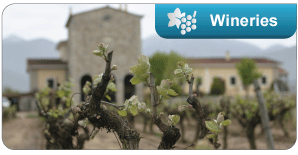The Greek viticultural research of tomorrow
A decade after the launching of the first graduate programs in oenology, the debate on the Greek viticultural research of tomorrow is already on the table and the agenda for the forthcoming years is gradually being formulated. It appears that efforts will come under a centralized coordination and will focus on ampelography, where indentifying and sorting out clones will become an important asset of Greek wine-growing in the future, at least as far as the key native Greek varieties are concerned.
The Greek viticultural research of tomorrow, however, also has to determine those varieties that will yield the commercially most successful wines. For this purpose, a collaboration scheme involving viticulturists, oenologists and chemists/taste technology experts is in the works, targeting the enhancement of knowledge on the chemical composition of grapes and wines. This will be followed by the determination of the optimum maturations and the appropriate viticultural practices per variety and per targeted product.
The further growth of organic viticulture and curbing the use of chemical pesticides in order to protect the environment will also be on the agenda of the Greek viticultural research of tomorrow, with a focus on wines derived from alternative viticultural practices in the immediate future. Other issues, such as climate change and water shortage, are bound to be included as well.
Another field of interest in the Greek viticultural research of tomorrow is the development of the so-called “green technology,” which would target the exploitation of winery by-products and the use of renewable sources of energy.
Last but not least in the agenda of the Greek viticultural research of tomorrow will be the application of bio-molecular indicators in determining the selection, improvement and commercial production of yeast strains appropriate for Greek varieties, focusing on the optimization of alcoholic fermentation conditions: Greek musts, often with a high alcoholic content potential, do not always contain sufficient nutrition for yeast and this impacts the organoleptic features of the wines produced. In this framework, ongoing research by higher education institutions and wineries into the production of wines from indigenous yeasts will continue in various Greek regions.


